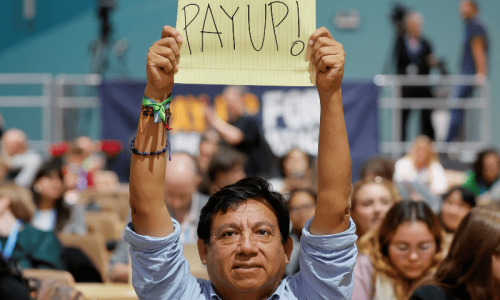NEW DELHI: Prime Minister Narendra Modi on Sunday launched the world’s biggest health insurance scheme, promising free coverage for half a billion of India’s poorest citizens ahead of national elections next year.
The bottom 40 per cent of India’s 1.25 billion people will be covered under the flagship programme, dubbed “Modicare”, unveiled in the federal budget earlier this year.
The 100 million lowest-income families will be provided 500,000 rupees ($6,900) — a sizeable sum in India — in annual health insurance to treat serious ailments. The scheme is expected to cost the central and 29 state governments $1.6 billion per year in total. Funding will be increased gradually according to demand.
India’s overburdened public health system is plagued by a shortage of facilities and doctors and most people use private clinics and hospitals if they can afford to.
But a private consultation can cost 1,000 rupees ($15), a huge sum for millions living on less than $2 a day. More than 60 per cent of the average family’s spending goes on medicines and healthcare, the government estimates. Many of the poorest just go without care.
A report published this month by The Lancet medical journal found substandard healthcare was responsible for an estimated 1.6 million deaths a year in India — the highest anywhere in the world. Critics have questioned how the government plans to fund such an enormous safety net, and suggested it was little more than a sop ahead of elections next May.
Some healthcare providers have raised concerns about being left out of pocket, fearing the government has underestimated the cost of certain treatments.
Prathap Reddy, chairman of private hospital chain Apollo Hospitals, said the private sector was “rightly worried” about pricing and reimbursements. “While we all work together to ensure the success of this scheme, there are areas that need focus and fine tuning,” he said.
Others say it should have included primary day-to-day healthcare instead of just secondary and tertiary care for more serious and long-term treatment.
“Modicare does not extend to primary healthcare, which, we believe, is the weakest link in the provision of public health in India,” Rajiv Lall and Vivek Dehejia of the IDFC Institute think-tank said in a column for the Mint newspaper.
Published in Dawn, September 24th, 2018













































